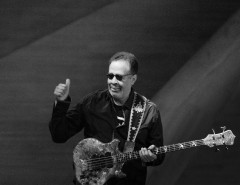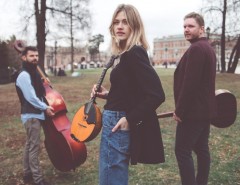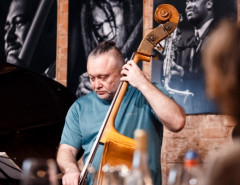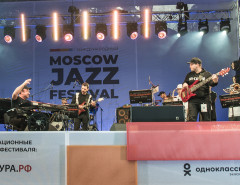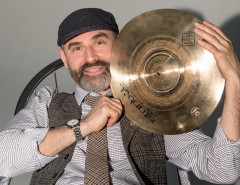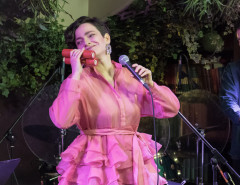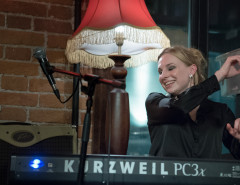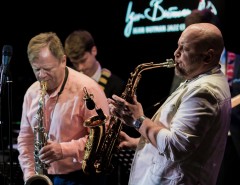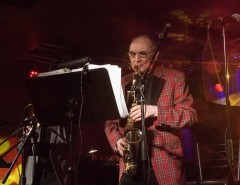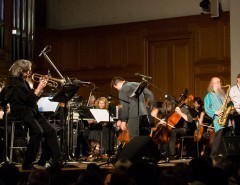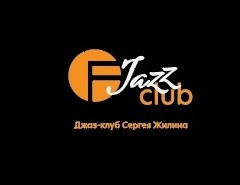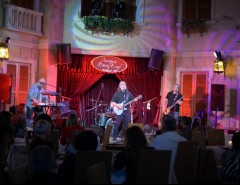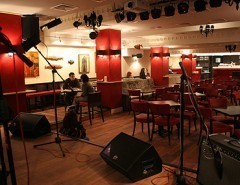Stanley Clarke

Живая легенда, пионер джаза и фьюжн, непревзойденный виртуоз и четырехкратный обладатель премии GrammyСтэнли Кларк, несомненно, является одним из самых известных бас-гитаристов во всем мире. За свою более чем 45-летнюю карьеру Кларк сотрудничал с такими выдающимися личностями в истории музыки, как Куинси Джонс, Арт Блэйки, Пол Маккартни, Кит Ричардс, Арета Франклин, Джефф Бек, Херби Хэнкок, Стиви Уандер, Майкл Джексон и многими другими. Стэнли Кларк представит свое шоу для настоящих ценителей джаза и джаз-фьюжна: 17 апреля он выступит в Московском международном Доме музыки, а 18 апреля — в Санкт-Петербургском театре «Мюзик-Холл».

- You said once "What’s cool about bass players is that they come from all different starting points" And what is your starting point? Would you please tell our readers about first instruments you were playing?
My family was very musical. My mother bought a piano when I was seven or eight. I was extremely excited about this and even though I didn’t have formal piano lessons until much later, I played quite a bit and develop some understanding of the instrument. I would try to pick out songs that I heard on the radio. I was not very good at this, but the effort did create some evolution in my music abilities.
I've told the story before, but when I was about 12 we were suppose to pick out an instrument to be in the school band. I was late and all that was left was a tuba, a bass drum and an acoustic bass. I didn't want the others, so I chose the acoustic bass. It was meant to be!!
The double bass is my first instrument and is the only instrument that I really studied. I put many hours into studying the acoustic bass. I didn’t really study the electric bass. That was more fun and I sort of picked it up

- "That’s one of the beautiful things about music, and it’s a form of love." What does it mean for you in everyday practice? Is it your way to connect with people? Or to see the world? What do you want to say to you listener when you step on to the scene?
Music is a part of my life everyday. Music, like many of the other arts, is the highest form of communication there is in this universe because it transcends all differences amongst its listeners. It rides above race, ethnicity’s, gender and even cultural differences. You can have one piece of music that all these extremely different types of people along with their extreme differences can enjoy at the same time and on the same level and wavelength.
That is a testament to the power of music. Who wouldn’t want to be a part of that?

- What is your opinion about current music trends among young audiences? Do they understand and appriciate your music stile and your compositions?
I appreciate all genres of music and have picked up a little from all. Whether the music is good or bad is really an individual decision for each person. I grew up listening to all types of music and continue today to do this.
Exposure is the key. I think that the young, when exposed to our music, overwhelmingly embrace it. Certainly the Internet has helped with exposure to different genres. I find that at each performance I have a group of kids under 30 waiting outside to speak with me. Sometimes it may be because seeing my performance on the Internet or possibly an interview with bassist Flea of the Red Hot Chili Peppers mentioning me.
I’ve had young people come up to me with their parents after a show and say, “I had no idea there was music like this on the planet.” So…exposure is the key. Due to the necessities of commerce, things tend to be categorized. I believe the Internet is widening the empowerment of information in music.

The Stanley Clarke Band в Доме Музыки

Афишаджаза
Джазовая кухня с Ильёй Зыряновым. SPECIAL GUEST - Владимир Нестеренко (электроорган)
Новое на сайте
Звёзды джаза

John McLaughlin / Джон Маклафлин
Джон Маклафлин (известный также как Махавишну Джон Маклафлин, англ. Mahavishnu John McLaughlin; 4 января 1942) — британский гитарист-виртуоз…
Яков Окунь
Ежемесячная серия концертов-джем сейшнов, в которых Яков представляет своих коллег музыкантов разных поколений…
Ришар Гальяно
Ришар Гальяно, получивший во Франции прозвище «священный монстр джаза», родился 12 декабря 1950 года…
